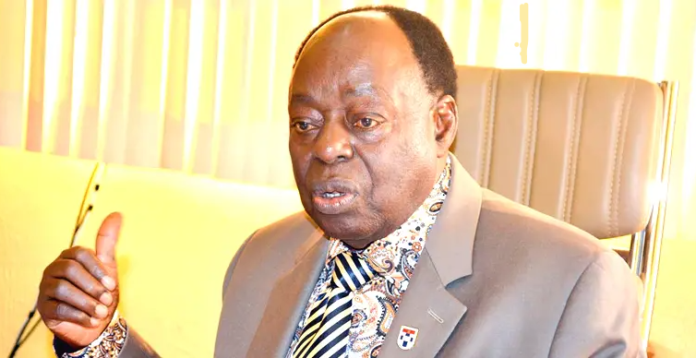As the Afe Babalola provided data for the Nigerian Universities Commission (NUC), there are presently 263 higher education establishments in Nigeria. Furthermore, out of these, 63 are owned by the state, 147 are private and 53 are federal institutions. In Nigeria, the number of private postsecondary schools exceeds that of federal and state colleges combined.
It goes without saying that the majority of Nigerian institutions and their students would be left out if private tertiary schools and their students were to be excluded from any program in Nigeria today.
Nigerian private institutions
Federal and regional governments, and eventually state governments, were responsible for the initial initiatives and advancements in tertiary education in Nigeria. administrations. There was not a horde of people vying to attend postsecondary education at that time. The situation is drastically different now because there are millions of applicants to postsecondary schools each year and not enough space to house them.
Read Also: Efcc Arrests Bobrisky For Allegedly Abusing Naira
In response to the surge in the number of individuals pursuing postsecondary education, both national and subnational governments established additional educational institutions to accommodate and prepare the vast number of applicants. The Nigerian government realized that it would have to ask for assistance from the private sector as it became apparent that the many branches of government were unable to cope with the inadequacy of the multiple institutions.
The Federal Government has been awarding licenses to the private sector since 1999. advocates for the establishment of private universities in Nigeria. This is undoubtedly a recognition of the role that private higher education institutions play in providing services and enhancing the socioeconomic standing of Nigeria and its people.
According to recent rankings by credible ranking authorities, private institutions have done favorably when compared to government-owned institutions within the first 20 years of their establishment. Students and sponsors alike now have renewed faith that their studies will follow a steady schedule and they will finish on time thanks to private universities.
It is important to note that all of the accomplishments of private universities in Nigeria, particularly those that have occurred recently, have been made possible by private funding. This is without getting into all of the specific accomplishments of these institutions and their students.
Discrimination in Nigeria against private establishments
In Nigeria, there have long been laws and practices that discriminate against private tertiary institutions.
By law, Nigeria runs a program of taxpayer subsidies known as the Tertiary Education Trust Fund, or TETFund, which was once created through the Education Trust Fund. This fund has only been used to support the national or subnational development of postsecondary institutions under government control.
When the Executive Secretary of the TETFund, Mr. Sonny Echono, announced on Sunday, February 4, 2024, that funds would be approved for disbursements to support federal tertiary institutions in Nigeria alone, it served as a sobering reminder that many Nigerians will never benefit from the disbursement, which is intended to support higher educational institutions in Nigeria merely because such individuals opted to attend private universities.
According to the Tertiary Education Trust Fund Act of 2011, the TETFund is an intervention fund created to revitalize, restore, and integrate tertiary education in Nigeria. The Education Trust Fund of 1993 is where the fund first started. The Education Tax, which is imposed on all Nigerian registered businesses excluding those that offer educational services, is used to fund the TETFund. Companies must pay an education tax equal to 3% of their profits.
Read Also: 38-year-old Engineer Named Deputy Governor By Obaseki
The money is intended to support or maintain
- Institutional materials and equipment;
- The physical infrastructure that is necessary for teaching and learning;
- Studies and writings;
- Instruction and growth for faculty members
- Any additional crucial requirement for preserving and raising standards in higher education establishments.
The enormous sums that the TETFund has accumulated are only currently utilized to support public institutions. Sections 6(e) and 7(1) of the TETFund Act, which specifically limit the application of TETFund to public tertiary institutions, are the root cause of this regrettable situation. It is significant to remember that the TETFund was first proposed prior to the Federal Government of Nigeria inviting capable and interested sponsors to create private colleges in the country.
Given the state of affairs now, the TETFund need to be made available to all institutions of higher learning, with the option to impose specific restrictions in order to guarantee accountability and openness. The Federal Government is limiting the benefit of this admirable intervention to only students at public, federal, or state institutions if the TETFund’s applicability is restricted to public institutions. This approach can only be discriminatory because all institutions, public and private, were established with the ultimate goal of educating and empowering Nigerians.
In other countries, taxpayer subsidies
To keep things brief, I will use the United States as an example of what is possible in other countries. According to studies, elite private institutions in the United States, such as Harvard and Yale, get an average public subsidy of $13,000 per student annually, whereas the most selective universities, such as the More than $23,000.00 is awarded annually to the University of California, Los Angeles and the University of North Carolina, Chapel Hill. This is government assistance straight from the source.
In the United States, how do private universities get government funding?
In the United States, private institutions are funded by the government in a number of recognized ways. Below are a few instances:
Grants for Research
Funding for research grants from government organizations like the National Science Foundation is available to private colleges. It is true that some of these subsidies are exclusive to private postsecondary institutions.
Grants for Technology
Federal funding is also available to private universities for the purpose of financing particular technological advancements. These programs include the School Safety Grant Program and CARES Act Funding, which is a grant program for instructional technology.
Financial Assistance for Students
Federal student aid is an option for students who intend to attend private schools; if they do, the school will get the funds to pay for tuition and other educational expenses. Another form of financial aid for students is the federal grants program, for which they can apply.
Work-Study Initiatives
Work-study programs are used by the majority of universities, including private schools. Part-time employment is an option available to students attending private colleges who wish to apply for federally subsidized financial aid.
In the United States, how may students attending private universities obtain federal funding?
Students are eligible for federal student aid, or FAFSA, regardless of the kind of institution or university they attend. Students can use this method to apply for financial aid once a year.
Nigerian student loans and government subsidies are handled differently than in the USA
The news that Nigerian citizens who opted to attend private tertiary institutions duly licensed and accredited to grant degrees were not going to be eligible for any kind of benefit from the Act’s loans overshadowed the relief and excitement that greeted the Presidential assent to the Student Loans(Access to Higher Education) (Repeal and Re-enactment) ACT 2024.
In comparison to worldwide best practices, the Nigerian system that has been put in place thus far is inadequate and leaves much to be desired.
I’ve always recognized that students attending private colleges and institutions alike require every support available to enhance educational resources and student results, which must ultimately result in more benefits for Nigeria and her people.
Additionally, I have always supported and felt that students should be helped with their tuition and living expenses. Whenever it was required and to the best of my ability, I have always helped pupils, whether they were attending public or private schools.
Private universities are recognized for meeting and surpassing accreditation standards, offering well-equipped laboratories, first-rate infrastructure,
libraries, and a faculty of highly skilled and dedicated individuals who are dedicated to providing high-quality education.
This type of education can only be realized in environments where talent is quickly developed.
The private institutions in Nigeria are conspicuously positioned at the top of the rankings, according to international rankings of Nigerian universities.
Afe Babalola, AMEND
It is appropriate to state that, even if funding is limited, the government should be able to offer student loans to Licensed Private University students in order to help them and their sponsors in operating these facilities.
No pupil, as far as I can tell, is more Nigerian than any other. Thus, it is recommended and encouraged that a fair, non-discriminatory loan system be implemented for Nigerian students generally, allowing them to all pay fees and support their education.
Just like state institutions, private universities also train Nigerians, and training should not be subject to discrimination.
Any graduate, regardless of the type of higher institution, can make a contribution to Nigeria. went to. Nigeria ultimately gains from the goods produced by both public and private entities.



